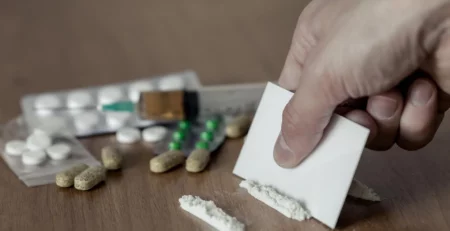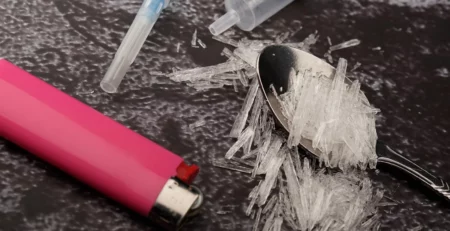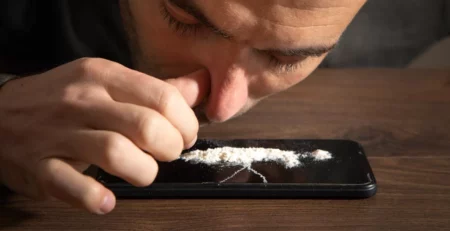Worksheets for People Out of Inpatient Treatment
Addiction and Mental Health Worksheets That Support Your Recovery
Congratulations on successfully making it through residential treatment. Now, it’s time to start a new sober life filled with motivation.
Even though your medical care provider prepares you for life outside an inpatient facility, it’s normal to feel uncertain about the days ahead. However, overcoming fear, social anxiety, and hesitation is vital to making the most of everything you’ve accomplished.
Luckily, with healthy coping skills and an active support system, you can achieve long-term sobriety successfully. That’s what Icarus Behavioral Health in Nevada offers. We have therapists, treatment programs, support systems, community, and a relapse prevention plan to guide you toward lifelong recovery. Our experts specialize in evidence-based therapies in fully featured mental health rehab settings to help you live your best life!
Continue reading and download our Worksheets for People Out of Inpatient Treatment to effectively manage your symptoms and live a normal life outside.
What is Inpatient Rehab?

Inpatient rehab is also referred to as residential treatment. It is a structured and immersive approach to addiction recovery. The primary purpose of inpatient treatment is stabilization. By emphasizing self-care, rehabilitation experts focus on getting you to a point where you are no longer a danger to yourself or others. They help with body image, gender identity, and self-esteem issues, and focus on long-term care to make you feel better.
People receiving inpatient care must reside at the treatment facility for a set period. This way, they have an intensive and peaceful environment to fully focus on their recovery without worrying about external triggers and distractions, and gradually step outside their comfort zone.
Get Accredited Treatment Programs at Icarus Nevada – Call Now!
Key Components of Outpatient Support After Inpatient Rehabilitation
The key components of outpatient support after inpatient rehabilitation include:
Therapy and Counselling
Therapeutic support doesn’t end with inpatient care. Outpatient programs also include evidence-based therapeutic approaches to support long-term sobriety. These approaches often include individual counselling, group therapy, physical therapy, and family therapy. These sessions support recovery by building emotional resilience. They also enhance coping skills required for dealing with feelings of anxiety, grief and depression.
Medical and Mental Health Support
Ongoing medical and mental health assessments are a key part of outpatient recovery. Intervention options are also immediately available when necessary. Icarus Behavioral Health experts specialize in dual diagnosis treatment. They offer effective treatment options for co-occurring mental health disorders.
Peer Support
Recovering from a mental illness can be a lonely experience. Therefore, individuals transitioning from inpatient care often benefit significantly from group therapy. Meeting group members with the same struggles and successes promotes a sense of camaraderie. Peer interactions keep you motivated, as all group members work toward the same goal.
Educational Workshops
Many outpatient programs also include educational workshops. These sessions help you understand how your brain works and the science behind your mental health issue. They provide tools to boost self-esteem, encourage self-reflection, and encourage discussion questions to help you grow.
When you know your condition better, you feel confident and prepared to deal with real-life triggers leading to substance use outside the inpatient facility.
Life Skills Training
Most outpatient support programs offer life skills training to ease you back into society without hassle. These trainings focus on improving basic skills like self-care, communication, conflict resolution, money management, and more for sustainable recovery.
What Are Out-of-Inpatient Recovery Worksheets?

Recovery from substance use doesn’t stop after you leave the rehab facility. It’s a long journey, and you need the right tools to reach your goals. Out-of-Inpatient Recovery Worksheets are practical tools to monitor your progress and keep you on track. Mental health worksheets are designed to help clients develop healthier habits and effectively manage triggers.
These worksheets offer a simple, easy-to-use, actionable road map to achieve sobriety. They cover various aspects ranging from:
- Identifying personal triggers
- Developing effective coping skills
- Setting achievable goals
- Monitoring progress
Mental health worksheets keep you focused on your goal, which is sustainable recovery, and complement your treatment plan both in treatment and recovery.
Three Recovery Worksheets for Support Following Inpatient Rehab
Inpatient programs are designed to treat substance abuse while helping you build a new life. To sustain sobriety, you need to track your behaviors and emotions and control automatic thoughts, to avoid triggers that may cause relapse.
Recovery worksheets help with this by offering:
- Structure: Recovery worksheets break the recovery process into manageable steps so you don’t feel overwhelmed.
- Self-Reflection: These worksheets help you monitor your progress, habits, emotions, and triggers.
- Progress track: Seeing your progress is an excellent motivator for fighting cravings. These worksheets help you track how far you have come to keep you motivated.
Out of Inpatient Recovery Worksheets can enhance your entire treatment plan, but they can’t substitute for therapy. Once you’re out of rehab, you can complete these worksheets to control your automatic thoughts.
Call your healthcare provider if you need any help or require more information, and if you are in the Silver State, please reach out to us at Icarus in Las Vegas for additional support options. Remember that the out-of-inpatient worksheets should not be used as a diagnostic tool.
Here are three Out of Inpatient Recovery Worksheets to complement your treatment plan:
1) Achieving a New Life: A Foundational Exercise Following Residential Treatment


According to a CDC and NIDA study, about 75% of people with addiction can recover. Focusing on your past rather than moving forward will make it difficult for you to adopt a sober life.
Therefore, you must fill your days with activities that take you out of the “Recovery” mindset. The thought of restructuring your routine might feel overwhelming. But once you decide to start fresh and stop dwelling on your past shortcomings, success will come to you naturally.
Here are a few steps you need to follow to sustain your sobriety and to continue moving forward:
Find new hobbies
Boredom can be risky, especially if you’re fresh out of rehab, and may cause a relapse. Therefore, you must fill your day with pastimes or interests that offer relaxation and pleasure. Group activities or spending time with a good friend also help you manage stress and anxious thoughts that trigger substance abuse.
Avoid High-Risk Situations
No matter how much self-control you develop, there will still be specific situations that could cause a relapse. You must identify and make a comprehensive list of the high-risk situations where you feel inclined to use a substance.
The best way to do so is to closely monitor your behavior and identify the situations that trigger negative thoughts. Avoid these situations as much as possible and always carry this list. Here are some general checkpoints you can include in your list:
- Stay away from friends who use drugs
- Avoid places like bars and clubs that might tempt you
- Tell your doctors about your past drug use
- Be careful when taking prescription medicine
Be Honest with Yourself and Others
Lying often becomes second nature to those who struggle with substance abuse. To start fresh, you need to be completely honest with yourself and the people around you, especially your support system. It benefits your treatment by not giving your addiction a chance to hide.
Be honest with your support system about your recovery. It might feel unnatural at first, but it gets better over time.
Learn to Manage Stress Without Substance
You must learn to relax in ways that are not linked to alcohol or drugs. Try to find a work-life balance and dedicate a short daily period to relax. Try not to overwork yourself, as it may cause you to crave substances and lead to relapse. And if you do feel stressed, try to beat it in a healthier, more natural way. Some helpful options include:
- Move your body (exercise, stretch)
- Refresh your mind (meditate, breathe)
- Nourish yourself (eat small meals)
- Connect with others (talk to a friend or loved one)
- Relax and unwind (aromatherapy, quiet time)
If you feel you are not able to manage stress and anxiety without substance use, seek professional help immediately.
2) A Worksheet on Mending Relationships in Early Recovery

Starting fresh after rehab also includes amending your relationships. For that, you must build a fresh foundation rooted in honesty. Start by being honest with yourself and then bring this change into your relationships. Through your actions, let your loved ones know that you’re not the same person you were under substance influence.
Acknowledge the positive environment and relationships outside the doors of rehab. Identify the people you’d want in your support system and create a safe environment for you to grow in. Recovery becomes easier when you have an active community to support your journey to long-term sobriety.
Share your development during rehab with those in your support system. Express your core values and beliefs to offer them a transparent understanding of the personal changes you have made in your life.
3) A Worksheet for Seeking Growth

Psychologists state that overcoming substance abuse is a process of post-traumatic growth. According to the UNC Charlotte Posttraumatic Growth Research Group, this process is defined as a positive change resulting from a traumatic event, grief, or life crisis. If you want to start fresh after rehab, here’s how you can experience this growth:
- Opportunity: Tough times offer new opportunities for personal growth. Look for the chances that came out of your struggles, and take charge of your future.
- Relationships: Recovery can help you grow closer to loved ones and build new, meaningful relationships with others who understand what you’re going through. These connections can support your sobriety and enrich your life.
- Personal Strength: Overcoming struggles makes you stronger. Take pride in your achievements and be happy about your progress.
- Appreciation: Focus on what you’re thankful for each day. It’ll help you grow and stay positive.
- Spirituality: Recovery can help you grow spiritually. Cultivate this growth by connecting with like-minded people and finding ways to deepen your spiritual practice.
Up To 100% of Rehab Costs Covered By Insurance – Call Now!
Are You Struggling with More Than Worksheets Can Handle?
Turn to Icarus Behavioral Health in Nevada for evidence-based treatment and holistic care that addresses your mental, emotional, and physical well-being.
We provide comprehensive addiction care, including inpatient and outpatient services and group discussions, tailored to each client’s needs.
Call us today for personalized, high-quality support for addiction and related issues.













